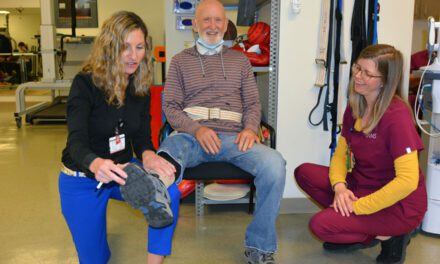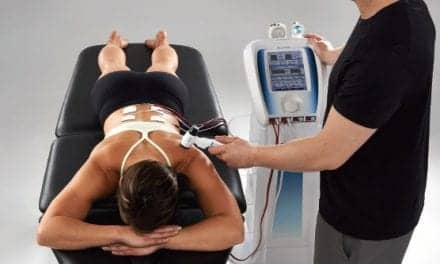People who are physically or mentally active prior to undergoing surgery may reduce their chances of developing postoperative delirium, according to a study published recently in the Journal of the American Geriatrics Society.
Postoperative delirium is a medical term that defines the sudden and severe confusion that older adults may have a tendency to develop after undergoing surgery. Between 10% and 67% of older adults experience delirium after surgery for non-heart-related issues, while 5% to 61% experience delirium after orthopedic surgery.
Delirium can lead to problems with thinking and decision-making. It can also make it difficult to be mobile and perform daily functions and can increase the risk for illness and death, according to a media release from the American Geriatrics Society.
Healthcare providers can use several tools to reduce the chances older adults will develop delirium. Providers can meet with a geriatrician before surgery, review prescribed medications, and make sure glasses and hearing aids are made available after surgery (since difficulty seeing or hearing can contribute to confusion). However, preventing delirium prior to surgery may be the best way to help older adults avoid it.
A team of researchers from Albert Einstein College of Medicine designed a study to see whether older adults who are physically active before having surgery had less delirium after surgery. The research team had previously found that people who enjoy activities such as reading, doing puzzles, or playing games experienced lower rates of delirium.
The participants in this study were adults over 60 years old who were undergoing elective orthopedic surgery. Most participants were around 70 years old. None had delirium, dementia, or severe hearing or vision problems.
The researchers asked participants the question “In the last month, how many days in a week did you participate in exercise or sport?” The researchers noted the type of physical activities the participants did, as well as whether and how often they read newspapers or books, knitted, played cards, board games, or computer games, used e-mail, sang, wrote, did crossword puzzles, played bingo, or participated in group meetings.
The participants said their physical exercise included walking, taking part in physical therapy, lifting weights, cycling, stretching, engaging in competitive sports, and dancing. The most commonly reported activity was walking. Though most participants were only active one day a week, nearly 26% were active five to six days a week and 31% were active five to seven days a week.
Among the 132 participants, 41 (31%) developed postoperative delirium.
In their study, the researchers report that participants who were physically active six to seven days a week had a 73% lower chance of experiencing postoperative delirium (delirium that develops after surgery). They also report that being mentally active was a strong factor in reducing the chances of developing postoperative delirium.
Participants who regularly read newspapers or books, knitted, played games, used e-mail, sang, wrote, worked crossword puzzles, played bingo, or participated in group meetings had an 81% lower chance of developing postoperative delirium, the release explains.
“While our study was preliminary in nature, we found that modest regular physical activity, as well as performing stimulating mental activities, were associated with lower rates of delirium after surgery,” according to the researchers.
The researchers also found that physical and cognitive activities seemed to offer benefits independent of one another. This suggests that people with activity-limiting injuries or conditions can still benefit from being mentally active, and people with mild cognitive impairment can still benefit from being physically active. More research is needed to learn about the role of exercise and cognitive training in reducing delirium after surgery, they add.
[Source(s): American Geriatrics Society, Science Daily]





